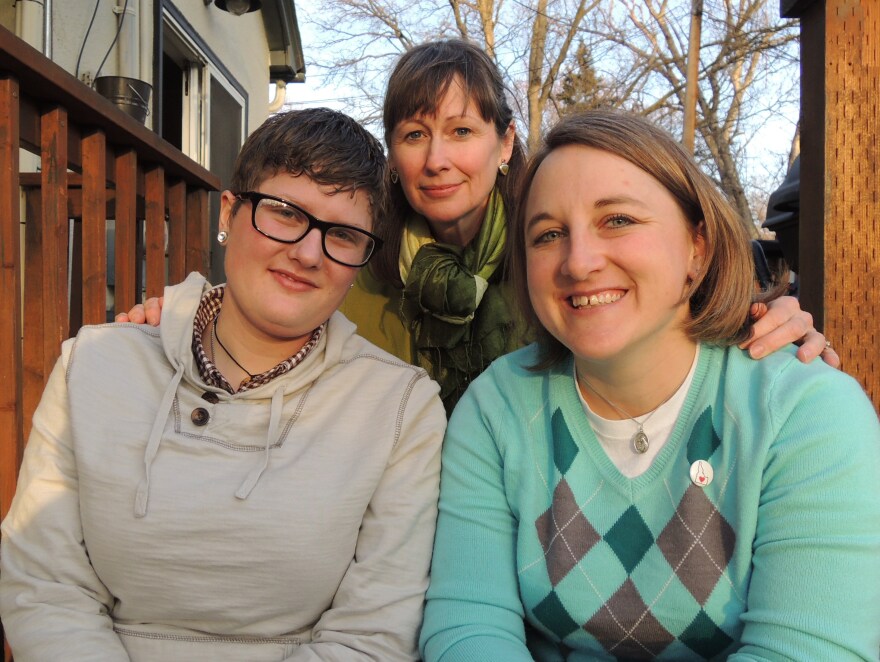A federal judge in Idaho will hear arguments Monday on a lawsuit to overturn the state’s ban on same sex marriage. Similar suits have been filed in more than 20 states since last summer when the U.S. Supreme Court made two decisions that strengthened the gay marriage cause.
Most of these cases follow a pattern - a few couples challenge state laws with help from local lawyers and a national organization. Idaho’s case fits that pattern.
The San Francisco-based National Center for Lesbian Rights (NCLR) has teamed up with Boise attorney Deborah Ferguson to represent four lesbian couples. They’ll face Idaho Attorney General Lawrence Wasden and lawyers representing Governor C.L. “Butch” Otter.
Wasden and Otter have vowed to defend Idaho’s constitutional amendment that bans gay marriage. NCLR legal director Shannon Minter says this case could resonate culturally around the country because of Idaho’s conservative reputation.
“If there were to be a victory in Idaho it would send a very positive message about where the country is headed,” Minter says.
In addition to the Idaho case, the NCLR has more than a dozen lawsuits going now. Those deal with issues like employment discrimination and immigration as well as same sex marriage. Minter says his organization focuses on lawsuits because U.S. judges try hard to be fair and impartial.
“The courts are the one place really where anybody, no matter how socially marginalized you may be, can get a fair hearing,” Minter says. “I think it’s one of the most important parts of our constitutional system.”
In December the NCLR helped overturn New Mexico’s gay marriage ban and won an initial victory in Utah. It also has marriage cases in Wyoming, Florida and Tennessee. But the group tends to keep a low profile. Executive director Kate Kendell acknowledges that in a video on the NCLR website.
“You haven’t heard of us,” Kendell states. “You know, we get that a lot, even though we’ve been around for over 30 years at the cutting edge of legal advocacy on behalf of everyone in our community.”
There may be good reasons for avoiding the spotlight. Shaakirrah Sanders teaches law at the University of Idaho. She says having a national organization with specialty expertise can be a big legal advantage for the local plaintiffs and their lawyers. But it may be a disadvantage in the court of public opinion.
“There may be some folks in Idaho who feel like, ‘we don’t need these Californians coming into our state, telling us what our laws are,’” Sanders says. “That may be a valid worry on the part of this national organization.”
But NCLR legal director Shannon Minter says he’s not concerned about that.
“We do want to keep people’s focus on the Idaho folks who are being harmed by these laws, not on us,” Minter says.
Minter does care about public opinion. It’s another reason for focusing on the courts.
“I think these cases are wonderful because they give people a chance to think about these issues,” Minter says. “Most people are probably not going to otherwise unless they happen to have a child or a friend who is gay or lesbian. But these cases, they’re in the public eye and people hear about the arguments on both sides. They see these families. And I think that starts a process of reflection that almost invariably they come to the conclusion that these laws are hurting people and they’re not accomplishing anything positive for anybody.”
Copyright 2014 Boise State Public Radio


